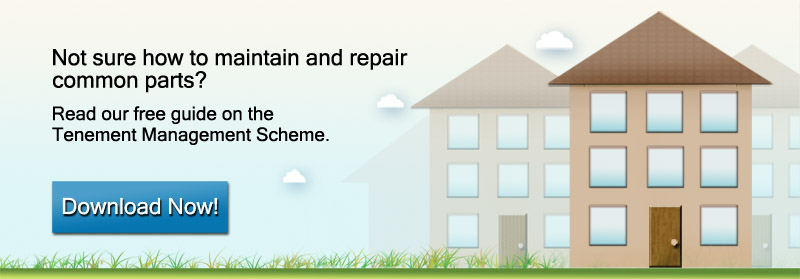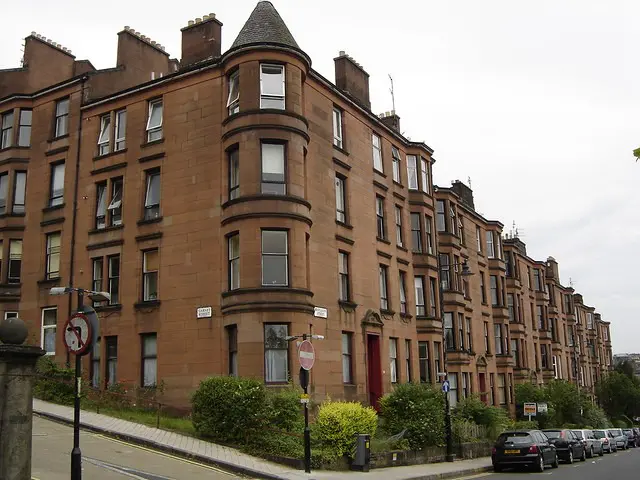Are you the owner of a property in a tenement? If you are, can you answer the following:
- Who owns the various parts in your tenement building?
- Who is responsible for the maintenance and repair of your tenement?
- What do you do if tenement repairs are required?
- Who is settling the account for your tenement repairs?
If you are unable to answer these questions, and repairs are required in your tenement, the starting point is to check the title deeds which relate to your property.
Your titles should detail, for example, which parts of your tenement are owned in common with your neighbours; which parts of your building you are responsible for maintaining and in what share; how your tenement building is managed; and how tenement decisions are made and implemented.
If your titles contain all of this information, and the titles of all other properties in your tenement contain the same information, then you need look no further. The title provisions are authoritative and should be followed.
However, it is often the case that the titles themselves do not provide all of the answers. Your title deeds may be silent or unclear on certain points. Or, there may be anomalies and inconsistencies between your titles and those of your neighbours (particularly if you have an interest in an older tenement which is not factored or regulated by a Deed of Conditions). If so, then recourse should be made to the Tenements (Scotland) Act 2004. The 2004 Act regulates the rights and responsibilities of tenement property owners in the absence of title provision.
The 2004 Act has created a default scheme for tenement maintenance and management known as the Tenement Management Scheme (TMS). This is a common scheme of management for tenement properties and includes the following:-
- The identification of certain parts of the tenement as ‘scheme property’ for the purposes of maintenance, repair and replacement. Specific examples of scheme property are the roof, foundations, external walls and solum (i.e. the ground upon which the tenement is built) but also includes any tenement part which is the common property of two or more owners.
- Procedures for making scheme decisions. For example, how proprietors’ meetings are called and conducted; voting requirements for making binding decisions; and providing appropriate notification of decisions.
- Matters on which decisions may be made. For example, appointing a manager; arranging for an inspection of scheme property; carrying out scheme maintenance; and arranging for a common policy of insurance for the tenement.
- A mechanism for having emergency work carried out.
Assuming a binding decision is made in respect of your tenement, and the list of works and associated costs have been agreed in detail, such a decision may include the requirement for owners to place appropriate funds into a ‘maintenance account’ to be applied to the cost of the upcoming works. Indeed, some contractors insist that the full anticipated cost of the works is placed into the tenement maintenance account before works will be undertaken.
Difficulties can arise where one or more proprietors within the tenement are unable or unwilling to fund their share(s) of the upcoming repair costs following a tenement decision. If an affected proprietor does not contribute to the maintenance account, the other owners must in the first instance make up the shortfall to ensure that works progress.
However, a ‘non-contributing’ proprietor can be pursued (as they do, of course, remain liable to pay their share), for example, through the sheriff court. Alternatively, a Notice of Potential Liability of Costs can be registered against their property which will impact on any future sale they may have. Conversely, for the owner in difficulty, there is the option of approaching the relevant local authority in connection with any Missing Share Scheme which they may operate.
The Tenements (Scotland) Act 2004 is no longer a young piece of legislation. However, there are many owners (individuals, companies and Registered Social Landlords) of tenement properties in Scotland who are grappling with tenement repairs. If you would like further information or advice, please contact a member of our team.







